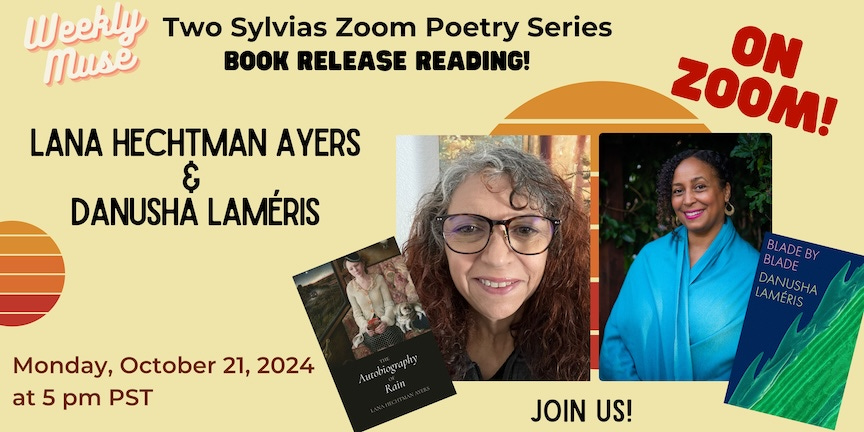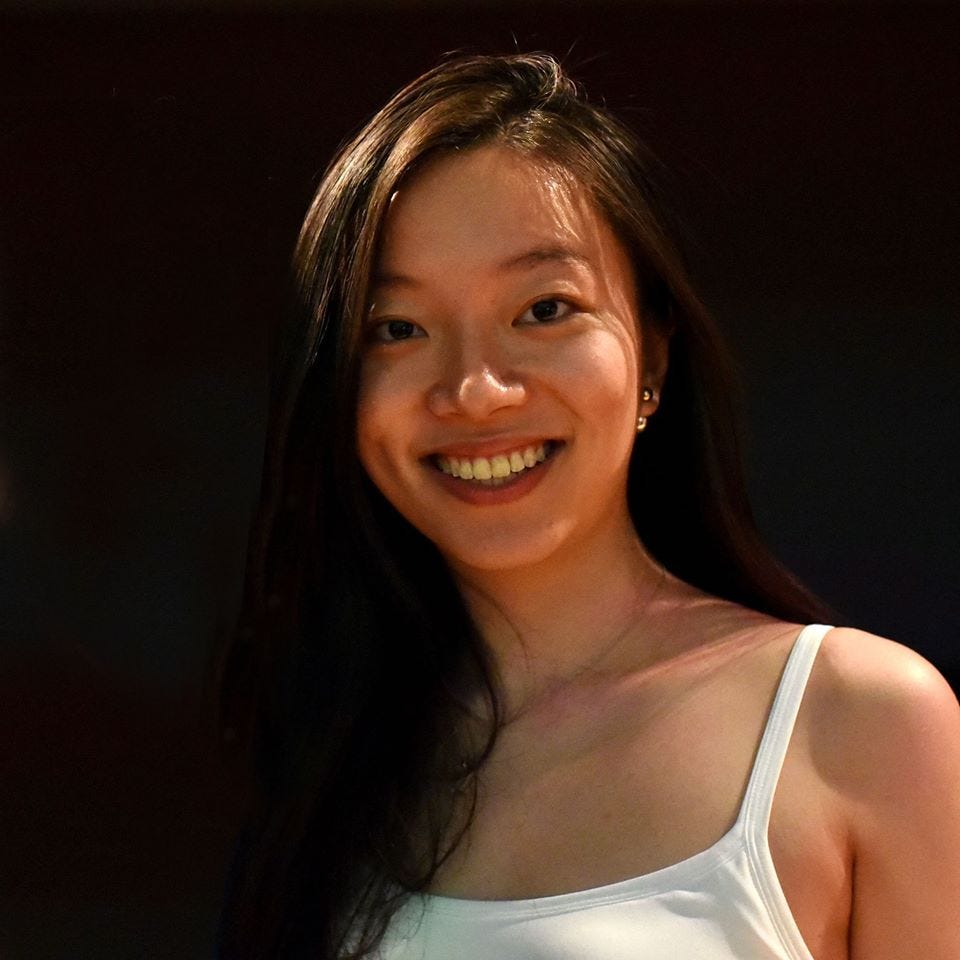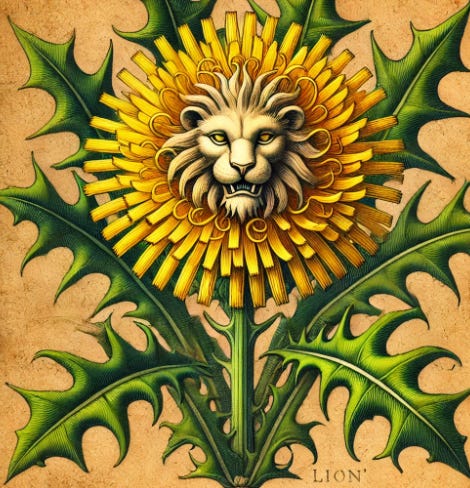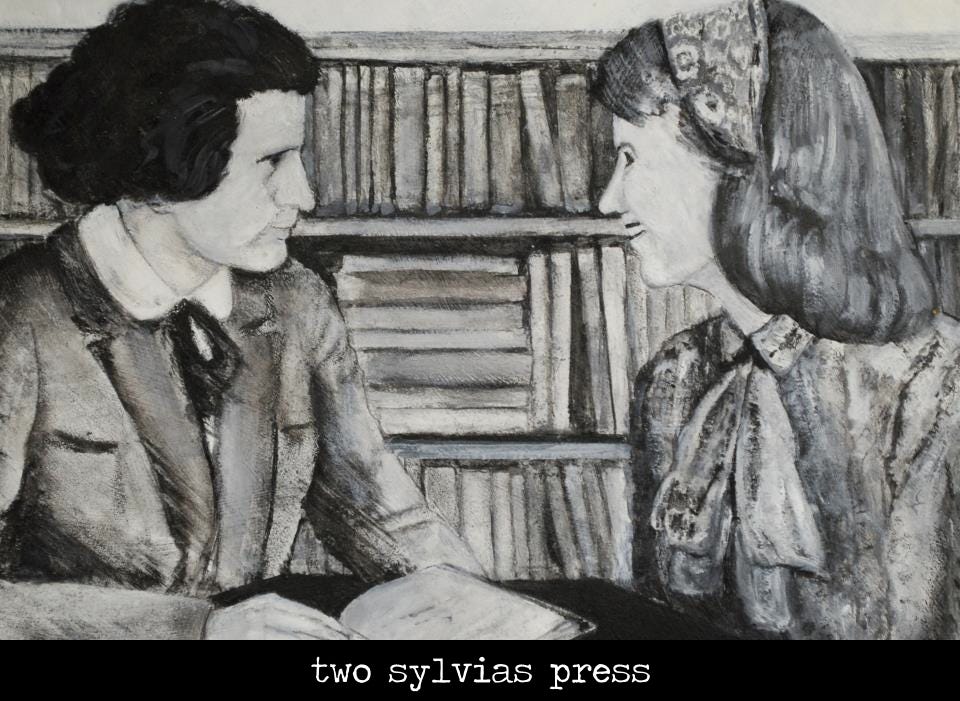Hello, Muse Readers!
In researching some of the various models used for group dynamics and improved communication, we came across an interesting tool called the Johari Window. It’s been a popular framework to help individuals in team building as well as leadership training. Some of us may have worked for companies which used the Johari Window to assist us in better understanding our relationship with ourselves and with our coworkers.
The model looks at our interactions with each other, breaking the experience into four areas: the open area (arena), the blind area (blind spot), the hidden area (facade), and the unknown area. The goal of using the Johari Window is to expand our open area by reducing our blind spots, as well as our hidden and unknown areas. We immediately wondered: how can this model be applied to receiving constructive criticism from writing critique groups or editors? Below we have adapted the four areas of the Johari Window so that it can offer you valuable insights into the process of receiving feedback:
Open Area (Arena): This represents the aspects of your writing that both you and others (peers, editors, or readers) are aware of. When you receive feedback in this area, it might reinforce what you already know about your strengths or weaknesses. For example, if you’re aware that you have a talent when it comes to writing sonnets, and the feedback confirms this, it can boost your confidence. On the other hand, if a recurring issue is pointed out (you tend to use cliches), the criticism affirms what you already recognize and are working on. This feedback in the “open area” is easy to embrace because it confirms what we already know.
Hidden Area (Façade): This area includes aspects of your writing process, intentions, or insecurities that you’re aware of but have not shared with others. Feedback might touch on these areas inadvertently, bringing up issues you’ve kept to yourself. For instance, maybe you are writing about a family secret (a parent’s suicide) but you are writing about it subtly and covertly. Feedback pointing out flaws might trigger you and hurt your feelings, so consider being more transparent with your group about what you are really writing about.
Blind Area (Blind Spot): This relates to aspects of your writing that others see but you are unaware of. Feedback here can be particularly valuable because it sheds light on issues you didn’t know existed. For instance, you might learn that your writing sometimes comes across as overly complex or that a certain theme isn’t coming through as clearly as you intended. Learn to accept this feedback with an open mind, realizing you can make improvements that you wouldn’t have considered on your own.
Unknown Area: This involves aspects of your writing potential or creative process that are unknown both to you and others. Feedback might occasionally tap into this area by encouraging you to explore new directions or techniques that you hadn’t considered before. For instance, someone might suggest that you revise your poem into a pantoum or villanelle—two forms you’ve never tried but could excel in. Be open to feedback that pushes you into uncharted territory and stretches your creativity.
The next time you are receiving constructive criticism on your creative writing (from a writing peer, a writing group, or from an editor), consider applying the four areas of the Johari Window to your feedback experience. Embrace the opportunity to deepen your self-awareness as a creative writer!
Join us October 24 for Danusha Laméris’ Zoom Class—Register Here!
If you haven’t already, make your calendars for October 24th at 5 PM PST! Join us for an exclusive 90-minute craft talk, writing session, and Q&A with the wonderful Danusha Laméris. Let yourself be inspired as Danusha shares her wisdom on poetry, guides us through a writing session, and wraps up with answering your questions. Don't miss out on this creative evening! Click here to REGISTER for this Zoom Class. Can't make it live? No worries—we've got you covered as we will be recording this inspiring evening to share here at a later date!
And a Special Evening for Poetry Lovers!
Also, to kick off Danusha’s class, we will be hosting a book release reading for Lana Hechtman Ayers and Danusha Laméris on Monday, October 21st at 5 pm PST on Zoom! Lana will be reading from her new book The Autobiography of Rain and Danusha will be reading from her new collection Blade By Blade. To be in the Zoom audience for this incredible evening, please click here to register!
Micro Blue Poems
This week, we’re focusing on the color blue and writing micro-poems. These prompts invite you to write poems of 5 lines or fewer. Feel free to write in haiku, tanka, or shorter free verse forms. To inspire your creativity, we’ve created two unique prompts to guide you as you explore the many shades and meanings of blue in your poetry.
#1. I Find the Denim Hat My Brother Wore As an Infant in the Back of My Mother’s Closet
Write a five-line or less poem where echoes of the color blue reverberate through each line. Perhaps it's the azure of an ancestor’s worn quilt, passed down through generations, or the blue eyes of a portrait that seem to follow you across the room. You may want your poem to reveal something hidden about identity or heritage. You may want to explore the indigo beads on your grandmother’s necklace, or the blue ribbons your father won at county fairs, or any object that carry the weight of family history. Try to use at least one more shade of blue on every line—here’s a list to help inspire you: azure, cobalt, cerulean, indigo, teal, turquoise, sapphire, navy, periwinkle, baby blue, sky blue, powder blue, royal blue, steel blue, slate, cornflower, midnight blue, electric blue, aquamarine, denim, ice blue, arctic, ultramarine, cyan, peacock, robin's egg, beryl, Prussian blue, Tiffany blue, air force blue, Capri, bluebell, Zaffre, electric indigo, maya blue, Carolina blue, iceberg, celeste, turquoise blue, iris, azure mist, Yale blue.
#2. Hearing Blue, I Think of Guardian Angels
Write a micro-poem that explores the idea of tasting, smelling, hearing, or touching the color blue. What would blue taste like? Perhaps it's the tang of a blueberry freshly picked, the cool bitterness of midnight air, or the sweetness of blue cotton candy melting on your tongue at a summer fair. Or maybe touching blue feels like melancholy or loss—the last moments holding the hand of your dying father. As you write, use synesthesia (tasting colors, seeing sounds, etc.) to blur the lines between senses as you focus on blending sensory experiences, using vivid and unexpected descriptions that cause your reader to feel, see, and taste the color blue in a new way. Allow your poem to have strangeness and feel free to let it take you wherever it wants to go! And if you would like to explore more about using synesthesia in your work, here’s the link to Jane Wong’s inspiring Weekly Muse Zoom class which explores that subject!
And when you have finished your poem, check out our “Submission Opportunities” below as Humana Obscura Anthology is looking for micro-poems on the color blue. Also, The Good Life Review and Gumball Poetry are still looking for micro-poems as well!
Humana Obscura Anthology / Deadline: December 31, 2024 Founding Editor-in-Chief: Bri Bruce Reading fee: $10 Up to 5 poems (or up to 10 haiku, tanka, or other forms of micropoetry 5 lines or less). The theme of the anthology is "blue," and however you interpret it—as the sky, the ocean, the shade of a particular flower, or an emotion. In keeping with the anthology's theme, a percentage of submission fees will be donated to Ocean Conservancy. https://humanaobscura.submittable.com/submit/282020/anthology-2025 Simultaneous submissions: Yes. The Good Life Review: Micro Monday / Deadline: December 31, 2024 Micro Poetry Editor: Terry Belew Reading fee: $0 Submit one poem that is no longer than one page. They read blind, and they pay $25 per poem. They also accept Spanish translations as long as the rights to translate have been previously acquired. #ProTip: They nominate for Pushcart, Best of the Net, Best New Poets, and pay $75 per piece of writing for their seasonal issues ($25 for Micro Monday Features). https://thegoodlifereview.submittable.com/submit/282813/2024-open-call-for-micro-prose-and-short-poems Simultaneous submissions: Yes The Gumball Project / Deadline: Ongoing Publisher: Carlos Steward Reading fee: $2 Black Mountain Press will have a gumball machine on-site that dispenses short-form poetry from writers all over the world! Please include no more than two poems per submission, up to 5-lines each (think: haiku, limerick, tanka, cinquain, etc). #ProTip: This is a new project with plenty of room for early submissions. Beat the crowd—get yours in now while it's still under the radar! https://thehalcyone.submittable.com/submit/292942/the-gumball-project Simultaneous submissions: Not specified. Apricity Magazine / Deadline: January 5, 2025 Literary Editor: Evie Brousseau Reading fee: $0 Submit up to 5 poems. #ProTip: They welcome previously published pieces. https://apricitymagazine.submittable.com/submit/151958/literary-arts?step=submission Simultaneous submissions: Yes. Young Ravens Literary Review / Deadline: December 15th, 2024. Editors: Sarah Page and Elizabeth Pinborough Reading fee: Submit up to 5 poems. https://www.youngravensliteraryreview.org/submission-guidelines.html Simultaneous submissions: Yes. Jack Straw Writers Program / Deadline: October 31, 2024 (Regional: PacNW area for for anyone who is willing to travel to Seattle) Executive Director: Joan Rabinowitz Board President: Dominic CodyKramers Curator: Kathleen Alcalá The purpose of the Jack Straw Writers Program, located in Seattle, WA, is to introduce writers to the medium of recorded audio; to develop their presentation skills for both live and recorded readings; to encourage the creation of new literary work; to present the writers and their work to the public; and to build community among writers. Note: Artists living outside of the Puget Sound region may apply, but should be aware that expenses for travel, lodging, etc. are not included in the award. Artists may apply as individuals or in teams. #ProTip: Check out their alumni event on October 21 to get a feel for the program. Susan Rich will be reading! https://www.jackstraw.org/event/jack-straw-alumni-poetry-series-5/ https://jackstraw.submittable.com/submit/300321/jack-straw-writers-program-2025 Simultaneous submissions: Not applicable. Test Site Poetry Series / Deadline: December 15, 2024 Series Editors: Claudia Keelan and Andrew S. Nicholson Series Board Members: Sherwin Bitsui, Donald Revell, Sasha Steensen, and Ronaldo V. Wilson Reading fee: $25 Send a manuscript of at least 48 pages. They say, “We're looking for manuscripts that engage the perilous conditions of life in the 21st century, as they pertain to issues of social justice and the earth. The winning book will demonstrate an ethos that considers the human condition in inclusive love and sympathy, while offering the same in consideration of the earth. Because we believe the truth is always experimental, we'll especially appreciate books with innovative approaches.” Interim will choose two winning books for the series—one title publicized as the winner of The Test Site Poetry Series and the other as the Betsy Joiner Flanagan Award in Poetry. Both winners will receive $1,000 and their books will be published by the University of Nevada Press. https://interimmagazine.submittable.com/submit/301247/test-site-poetry-series-2024?step=submission Simultaneous submissions: Yes. Unique Opportunity! Copper Canyon Press Internships / Deadline: November 1, 2024 Contact: Janeen Armstrong, Reader Services Manager To apply for an internship at Copper Canyon Press, please submit your resume, a cover letter, and contact information for three references. Compensation: Copper Canyon Press offers interns a $500 per month stipend, a generous sampling of books as well as potential participation in special events and author readings. Learn more here: https://www.coppercanyonpress.org/get-involved/internships-volunteer-opportunites/
Interview with Stella Wong: On Being Heard
TSP: Congratulations on the forthcoming publication of your debut full-length collection Stem (Princeton University Press, 2024). Many of your poems employ a "dramatic monologue." In the poem "Dramatic Monologue as Laurie Spiegel" you mention "shaping whatever speaker you want," and in your final poem, "Dramatic Monologue as Delia Derbyshire," you write, "It is all me." Could you talk about the role of the speaker in a poem and how, as a poet, you enter into these other voices? How do you define the difference between the speaker of the poem and the poet herself?
SW: I learned how to play the piano before I learned how to speak English. Music is the most natural language I have, so especially for artists who are gone, I listen to their albums (Spotify playlist here) to think, to reflect, to enter these other voices. I was lucky to audit a class by the sound artist Seth Cluett, and his first prompt the first day was a listening exercise: one minute of silence. It didn't sink in until years later, after building the ability to really listen to the sounds around us.
TSP: In your poem "Dramatic Monologue as Maryanne Amacher" you write, "I want to be heard // like a fragile hyperplane." What is it you hope people hear in your poems?
SW: What I hope people hear in these poems is the urge to communicate, to hear and to be heard, to express oneself. I believe this is neverending. I love this poem by Josh Bell, “Where the I Comes From”. At the end, out of the entire universe, only the speaker remains:
…and yet the sound
of a voice, like someone singing
in the hold of a sinking ship,
unbidden and irrelevant, a fathom
and a fathom deep, but never fading.
*****
Book description: In Stem, Stella Wong intersperses lyric poems on a variety of subjects with dramatic monologues that imagine the perspectives of specific female composers, musicians, and visual artists, including Johanna Beyer, Mira Calix, Clara Rockmore, Maryanne Amacher, and Delia Derbyshire. In such lines as “let me tell you how I make myself appear / more likeable,” “as I grow older I like looking at chaos,” and “I want to propose a hike / and also propose mostly,”
Best link(s) to purchase Stem: https://press.princeton.edu/books/paperback/9780691264042/stem or pre-order at your local bookstore
Author website: www.stella-wong.com / Facebook / Twitter: @stellayywong Instagram: @stellayinwong / TikTok: @stellayinwong
Stella Wong is the author of the poetry collections Stem (Princeton University Press), Spooks (Saturnalia Books), and the chapbook American Zero (Two Sylvias Press). Her poems have appeared in many publications, including Poetry, Los Angeles Review of Books, Colorado Review, Lana Turner, and Bennington Review.
*****
For Questions to the Editors: email any questions you have about writing poems, submitting your work, book contests, etc. to: twosylviasweeklymuse@gmail.com and we will choose a question to answer every other week!
And I Guess That’s Why They Call It the Blues
We are in mid-October and for some of us, this can be the beginning of feeling depressed due to the shorter, darker days and the shift of our biological clocks. You might feel less energy and less motivation when it comes to the activities normally bringing you joy and fulfillment, for instance your creative and artistic pursuits. If you are feeling like you are entering that mid-Autumn rut with your writing life, we have a suggestion for breaking through the block and spicing up (pumpkin spice, perhaps?) your writing practice by employing a creative constraint. In other words, come up with a “rule” that you must use while composing your piece, whether you are working on a poem, flash fiction, or short story.
Below are some ideas for creative constraints which you can use to re-engage and add some new zing to your writing:
Limit the word or syllable count of each line of poetry or prose sentence—only 5 words per line.
Ban a particular letter from your poem or prose piece—can’t use “m” or maybe “t” (don’t pick “x” or “z”—challenge yourself!)
Make a word or concept a must—every other line (or sentence) must contain a color or every third line (sentence) must contain a synonym for “sad.”
Ban or constrain a word class—no adjectives, or only 5 verbs allowed, or no proper nouns, no pronouns, etc.
Flip through a random poetry book and write down 12 words you see—these words must be used in your poem or prose piece.
Flip through a random non-literary book, like a car manual, People Magazine, a newspaper, a chemistry textbook, and write down 12 words you see—these words must be used in your poem or prose piece.
Use a limited word palette by choosing 4 topics. All words you use (except for the verb “to be” and articles) must relate to one of your topics—you might pick “weather,” “animals,” “food,” “baseball,” and each word in your poem must relate to those topics in some way.
Tie yourself to “time”—your poem or prose piece must mention the following words: century, decade, year, month, week, day, hour, minute second.
Or make up your own random rules! These constraints will push your creative boundaries and will wake up your thinking skills, especially on days that feel hazy, lazy, and uninspired.
Do you know the origin of the word dandelion? Do those yellow flowers have anything to do with actual lions?
Yes, they do! “Dandelion” is the English pronunciation of the French term “dent de lion,” which means “lion’s tooth.” The jagged shape of the plant’s leaves have deep notches that look like rows of sharp teeth, which gives the beloved weed its name—dandelion.
Subscriber News and Inspiration
Rebecca Spears writes: “My poems "The Migratory Seasons" and "San Marcos Springs" are appearing in the Fall issue of Willawaw Journal. Also, my poem "Turning the Lights Back On" has been published in the Fall issue of Equinox. And recently, I was awarded the Open Doors Poetry Fellowship for 2024 at Porches Writing Retreat. It's a pleasure to have my poems go out into the world and also to have my work recognized—it keeps me going!”
Lorie Greenspan has two poems in Field Guide Poetry Magazine: “Queenly” and “the act of moving,” the latter appearing in her chapbook, What it is to grow a garden in the Age of Terror under the title, “Surrender Dance.” Click here to view the online edition of Field Guide Poetry Magazine, which is also in print.
Jessica Goodfellow writes: “Pleased to have a poem in the Silver Birch Press series “All About My Mother” today.” You can read Jessica’s poem here.
Laurie Kuntz writes: “Many thanks to Melanie and Silver Birch Press for the curation of this fine series. Happy to be part of it.” You can read Laurie’s poem, “My Mother’s Hands on Mother’s Day” here. Laurie also writes: “Nostalgic gratitude to Jessica Frelow, editor of Discretionary Love, for publishing my Creative Nonfiction Piece, “Me and Maggie at Yasgur's Farm.” And, a rest in peace and power shout out to Max Yasgur for the gift of that farm.” You can read Laurie’s poem here.
Jane Hammons writes: “‘Good Friday’: a new piece of writing I'm calling a prose poem in Scrawl Place, a lovely journal devoted to place and travel (they also pay a small honorarium). I love it when I can use my photos with my writing: ‘All dirt is sacred.’” You can read Jane’s poem here. Jane also writes: “A flash humor CNF piece in HerStry published last week. Humor is not my strong suit, but some things write themselves! Austin, where I lived for five years, is strongly represented.” You can read Jane’s piece here.
Michael Dwayne Smith writes: “Dear Friends, thanks to off-the-hook editors L.M. Cole and Jared Povanda, my poem "Portrait, in Miniature" appears today in their lit journal Bulb Culture Collective, which has featured many a fine writer, including Ron Riekki, Susan Kay Anderson, William Doreski, Diane Gottlieb, and Kenneth Pobo. Much gratitude for the joy and the honor.” You can read Michael’s poem here.
Emma Goldman-Sherman writes: “Krazines' Moss Piglet will publish “Tongue Pocket” in their next issue, the theme was pattern.”
Diane Funston writes: “I have several poems in this edition of We Are Here.”
Patricia Davis-Muffett’s poem “Impending” is in the new issue of Little Free Lit Mag, which you can download here.
Maggie Koger writes: “Delighted and thankful to editor Chris DeVore for including my poems "Sonnets and Such," "Coming Back Out," and "The Beginning of Everything" in Volume 16 of the Mountain Home Arts Council's The Whistle Pig.”
Melody Wilson received an acceptance from The Emerson Review.
_____
We would also love to share your successes in the Weekly Muse. Please send along any publication good news to:
Please consider joining our private group of Weekly Muse members on Facebook in order to share your thoughts on writing, your poems, your challenges, your successes, etc. Request to join here…
As we step into October, we hope that these longer days and the onset of "Spooky Season 👻" are stirring your creative spirit. The shifting seasons can be a rich source of inspiration for poets and writers, offering wonderful opportunities to explore the natural world’s transformation.
For some, October marks a time of quiet reflection, as the landscape begins its journey into dormancy, with leaves falling and the days growing shorter. It’s a month that carries both the melancholy of endings and the beauty of change. Elizabeth Barrett Browning captured this duality in The Autumn, where she writes, “Waving woods and waters wild / Do hymn an autumn sound,” evoking the harmonious yet somber music of nature in decline.
But October is also a time of celebration—a moment to embrace the mystery and magic that fills the air. Whether you find yourself drawn to the ghostly tales of Halloween or the crispness of this season, we invite you to find new poems wherever you are. The world is in flux, and with it, your creative possibilities are endless.
We would like to end this week’s Muse with an autumn poem that invites us to consider the delicate balance of life and the often overlooked beauty and struggle in the natural world, in this case, the lucky chipmunk:
Wishing you a wonderfully autumnal week!
Two Sylvias Press Wilder Poetry Book Prize for Women over 50 is Open for Submissions!
Check out The Two Sylvias Press Wilder Poetry Book Prize awarded each year to a woman poet over fifty for her full-length poetry collection:
$1000 prize / Open to established & emerging poets / Deadline: December 31, 2024
Past winners: Carmen Gillespie, Adrian Blevins, Dana Roeser, Erica Bodwell, Gail Martin, Michelle Bitting, Gail Griffin, Tiffany Midge, and Eve Alexandra
Read the complete guidelines by visiting our website: https://twosylviaspress.com/wilder-series-poetry-book-prize.html
*****
Watch our recent Weekly Muse Zoom Series Classes by clicking on the links below:
Lena Khalaf Tuffaha: I Begin Again With the Smallest Numbers Poetry Class (September 2024)
Jane Hirshfield: Revision and the Creative Process (July 2024)
Jane Wong: Shadows of Limes and Roses: Memory and Synesthesia in Poetry (May 2024)
Past Zoom Classes: Kelli Russell Agodon—Generating New Poems; Jeannine Hall Gailey—The Art of Promotion & PR for Poets; Maggie Smith—You Could Make This Place Beautiful with Poetry; Susan Rich & Kelli Russell Agodon—Demystifying the Manuscript; Diane Seuss—Modern Poetry; January Gill O’Neil—Line by Line: The Practice of Revision; Susan Rich & Diane Seuss—Reading & Conversation
























When will Carolyn Forché and Dorianne Laux be on Zoom?
As usual very rich and inspiring material. My collection Flight has a poem called "Shades of Blue" which seems connected to your prompts. This week I'm working with the breath itself.
Nancy Shiffrin
https://www.NancyShiffrin.net